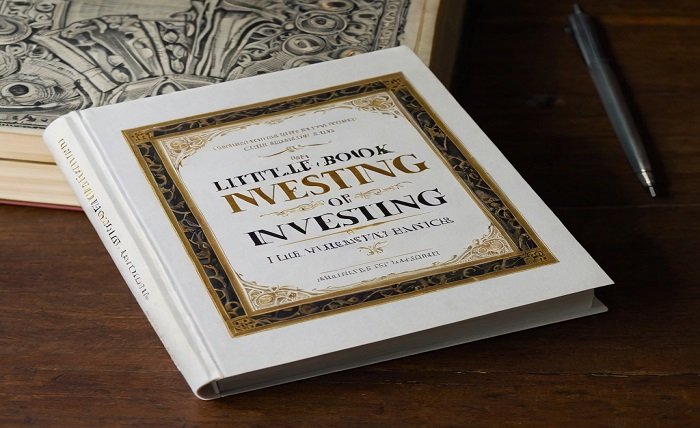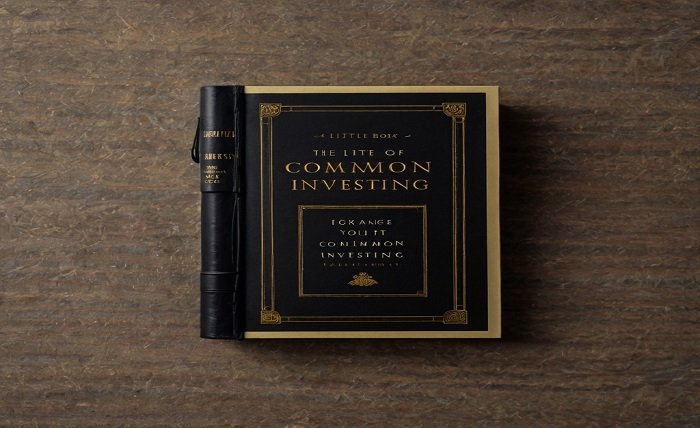Introduction
With countless tactics, market jargon, and viewpoints, investing can appear complicated. Fortunately, Jack Bogle’s The Little Book of Common Sense Investing breaks through the clutter by providing a clear-cut, fact-based strategy for accumulating wealth. Bogle enables investors to attain long-term financial success with little work by promoting inexpensive index funds. This blog examines the fundamental ideas of the book, their applicability in the current market, and the reasons why every investor ought to use this priceless tool.
Read More About: roku stock
What Is The Little Book of Common Sense Investing?

The Little Book of Common Sense Investing is fundamentally a manual for streamlining investment tactics. The book, which was written by John C. Bogle, the father of index investing and the creator of Vanguard, promotes inexpensive index funds over actively managed funds. Bogle contends that because of exorbitant fees and market volatility, trying to outperform the market frequently leads to poor performance. Rather, he illustrates how investing in and maintaining a diversified index fund can result in steady returns.
The Core Philosophy of the Book
The Little Book of Common Sense’s underlying theory Investing is easy: maintain the course, diversify widely, and keep expenses low. Bogle highlights that over time, the majority of actively managed funds fall short of their benchmarks. The book explains why index funds are a better option for the typical investor by emphasizing the effectiveness of the market and the power of compounding. By eliminating the stress of market timing and chasing “hot” stocks, this mindset frees you up to concentrate on long-term objectives.
The Power of Index Funds
The power of index funds is among The Little Book of Common Sense Investing’s most influential insights. These products provide wide market exposure by tracking market benchmarks such as the S&P 500. Long-term gains from index funds are dependable due to their lower fees and lower risk. Bogle shows that investors who adhere to index funds frequently outperform those who depend on actively managed portfolios using historical data. This is a game-changer for anyone looking to grow consistently.
Why Costs Matter in Investing
The significance of reducing investment expenses is a recurrent theme in The Little Book of Common Sense Investing. Exorbitant fees reduce your returns, which can lead to large losses over several years. Every dollar you save on fees is a dollar that compounds for you, according to Bogle. You may make sure that more of your money works for you rather than for fund managers by selecting inexpensive index funds. In the fee-driven financial environment of today, this lesson is especially important.
Market Timing vs. Staying the Course
The Little Common Sense Book The concept of market timing is disproved by investing. Many investors lose out on substantial growth when they attempt to forecast market highs and lows. Bogle’s counsel? Continue as is. The book shows that investing through market turbulence yields greater results. Time in the market outperforms time in the market, according to historical market trends. You can create long-term wealth and weather volatility with a straightforward buy-and-hold approach.
The Role of Discipline and Patience
The Little Book of Common Sense Investing frequently discusses patience and discipline. Bogle emphasizes how crucial it is to follow your investment strategy regardless of the state of the market. Emotional choices, such as chasing high-performing stocks or selling during downturns, frequently result in losses. Reminding readers that effective investing is a marathon, not a sprint, the book promotes a cool, collected approach. All levels of investors can relate to this timeless advice.
How The Little Book of Common Sense Investing Stays Relevant Today
Even though The Little Book of Common Sense Investing was published more than ten years ago, it is still very relevant today. More people than ever before are joining the market as a result of the growth of fintech platforms. Bogle’s counsel reminds investors that simplicity frequently triumphs over the complexity of today’s world. The ideas of disciplined investment, long-term planning, and inexpensive index funds are still as relevant today as they were when the book was first published.
Conclusion
The Little Common Sense Book Investing is a credo for wise, sustainable investing, not just a book. Jack Bogle provides a tried-and-true method for accumulating wealth over time by promoting index funds and placing a strong emphasis on simplicity. This book offers timeless concepts that can change your financial destiny, regardless of whether you’re new to investing or looking to improve your strategy. Start your path to long-term financial success by adopting the sensible advice in Bogle’s guide.
FAQs
What is The Little Book of Common Sense Investing’s primary takeaway?
The key takeaway is that because of their ease of use, cheap fees, and wide market exposure, low-cost index funds are the best option for accumulating long-term wealth.
The Little Book of Common Sense Investing: Who Should Read It?
This book will help anyone who wants to learn the fundamentals of investing, especially those who are new to the market or are fed up with complicated financial schemes.
Does The Little Book of Common Sense Investing simply cover index funds?
The book stresses concepts like cost reduction, long-term planning, and avoiding market timing, even though index funds are a primary focus.
What distinguishes The Little Book of Common Sense Investing from other books on investing?
Bogle’s method is based on simplicity and supported by decades of research, in contrast to many investment publications that advocate complicated strategies.
Can I use The Little Book of Common Sense Investing’s tenets in the current market?
Of course. Even with the advent of contemporary financial instruments and shifting market dynamics, the book’s ideas are still applicable and useful.

